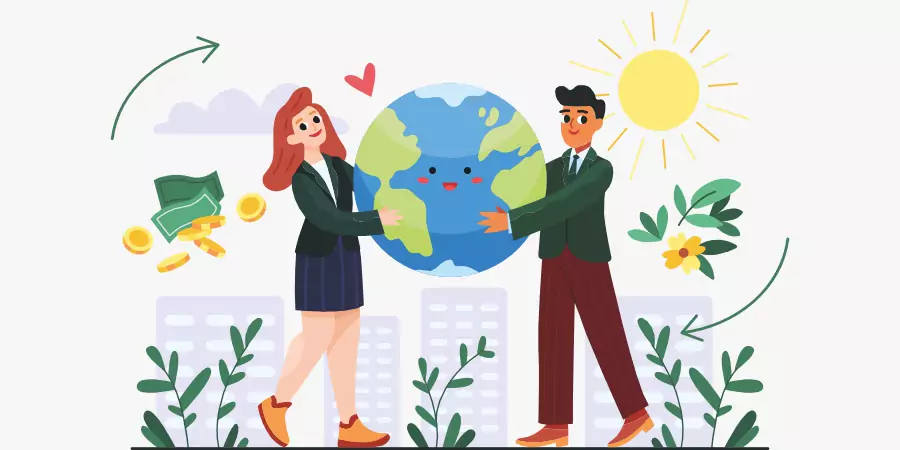The Gulf region, known for its vast deserts and rich oil reserves, is undergoing a transformative shift towards sustainable development. As the global community grapples with the pressing challenges of climate change, resource depletion, and economic diversification, the Gulf states are emerging as critical players in promoting innovative sustainability practices. This article explores the sustainable development initiatives in the Gulf, their implications for the region and beyond, and the lessons that can be learned from these efforts.
A Shift in Perspective
Historically, Gulf countries have relied heavily on oil exports to drive their economies. However, the volatility of oil prices and the urgent need for diversification have prompted governments to reassess their economic strategies. Visionary leadership in nations like the United Arab Emirates (UAE), Saudi Arabia, and Qatar has led to a newfound commitment to sustainability, aiming to reduce reliance on fossil fuels and foster economic resilience.
The Gulf Cooperation Council (GCC) states have recognized that sustainable development is not merely a luxury but a necessity for long-term prosperity. As a result, they are integrating sustainability into their national policies and development plans, setting ambitious goals to address environmental, social, and economic challenges.
Innovations in Renewable Energy
One of the most significant shifts towards sustainability in the Gulf is the investment in renewable energy. The UAE, in particular, has emerged as a global leader in this field. The Mohammed bin Rashid Al Maktoum Solar Park in Dubai is one of the largest solar energy projects in the world, with a planned capacity of 5,000 megawatts by 2030. This initiative not only contributes to reducing carbon emissions but also supports the UAE’s goal of generating 50% of its energy from clean sources by 2050.
Saudi Arabia, with its Vision 2030 initiative, is also prioritizing renewable energy. The country aims to generate 58.7 gigawatts of renewable energy by 2030, focusing on solar and wind energy. The NEOM project, a futuristic city under development, aims to operate entirely on renewable energy and incorporate advanced technologies to create a sustainable urban environment.
These projects demonstrate that the Gulf states are not just passive consumers of energy but are actively contributing to the global transition towards sustainable energy sources.
Water Management and Conservation
Water scarcity is a critical issue in the Gulf region, where arid climates and growing populations strain freshwater resources. To address this challenge, innovative water management practices are being implemented.
Desalination technology plays a crucial role in providing potable water to Gulf nations. The UAE has invested heavily in desalination plants, making it one of the largest producers of desalinated water globally. However, the environmental impact of traditional desalination methods has prompted the exploration of more sustainable alternatives, such as solar-powered desalination.
Additionally, rainwater harvesting and wastewater recycling initiatives are gaining traction. Qatar, for instance, has implemented programs to treat and reuse wastewater for irrigation, reducing the demand for freshwater sources. These efforts reflect a growing awareness of the importance of sustainable water management in a resource-constrained environment.
Urban Development and Smart Cities
As urbanization accelerates in the Gulf, cities are reimagining their development models to prioritize sustainability. The concept of smart cities, which leverage technology to enhance the quality of life and reduce environmental impact, is gaining momentum.
Dubai’s Sustainable City is a prime example of this approach. Designed to promote eco-friendly living, it features energy-efficient buildings, solar power generation, and extensive green spaces. The community encourages sustainable practices among residents, fostering a culture of environmental stewardship.
Similarly, Saudi Arabia’s NEOM aims to create a zero-carbon city that integrates cutting-edge technology with nature. The project envisions a sustainable ecosystem where residents can live, work, and thrive while minimizing their environmental footprint.
These urban development initiatives underscore the importance of integrating sustainability into city planning and management, offering valuable lessons for other regions grappling with urban challenges.
Education and Awareness
Sustainability cannot be achieved in isolation; it requires a collective effort from all sectors of society. Recognizing this, Gulf nations are investing in education and awareness programs to promote sustainable practices.
Educational institutions are incorporating sustainability into their curricula, equipping the next generation with the knowledge and skills needed to address environmental challenges. The UAE’s Ministry of Education has launched initiatives to integrate sustainability into science and social studies, fostering a culture of environmental consciousness among students.
Public awareness campaigns also play a vital role in driving change. Events like the Abu Dhabi Sustainability Week and the Qatar Sustainability Conference bring together stakeholders from various sectors to discuss challenges and share best practices. These platforms not only raise awareness but also facilitate collaboration and knowledge exchange.
Economic Diversification and Green Jobs
The transition towards sustainability is also creating new economic opportunities in the Gulf. As countries diversify their economies away from oil dependency, the green economy is emerging as a promising sector for growth and job creation.
Renewable energy projects, sustainable agriculture, and green construction are generating employment opportunities for the local workforce. Governments are supporting training and development programs to equip workers with the skills needed for green jobs, fostering a more sustainable and resilient economy.
For example, the UAE’s Green Jobs initiative aims to train and employ thousands of individuals in the renewable energy sector, contributing to both economic growth and environmental sustainability. By investing in human capital, Gulf states are positioning themselves for a prosperous and sustainable future.
Collaboration and Regional Leadership
The Gulf states are not acting in isolation; they are actively collaborating with international organizations, governments, and the private sector to advance sustainability efforts. Regional partnerships, such as the Gulf Cooperation Council’s initiatives on climate change and sustainable development, demonstrate a collective commitment to addressing shared challenges.
Furthermore, the Gulf region is increasingly participating in global discussions on sustainability, from the United Nations’ Sustainable Development Goals to international climate agreements. By sharing their experiences and innovations, Gulf nations are contributing to the global dialogue on sustainable development and inspiring others to follow suit.
Conclusion
The Gulf region’s journey towards sustainable development is a testament to the power of vision, innovation, and collaboration. By embracing renewable energy, implementing effective water management practices, reimagining urban development, and investing in education, Gulf states are not only addressing their own challenges but also setting an example for the world.
As the region continues to evolve, the lessons learned from these sustainable development practices can inform global efforts to combat climate change, promote economic diversification, and foster social equity. The Gulf’s commitment to sustainability is not just a regional imperative; it is a crucial contribution to the shared goal of creating a more sustainable and equitable future for all.
Read Also: The Role of Women in Driving Societal Change in the Gulf: Empowering Voices










